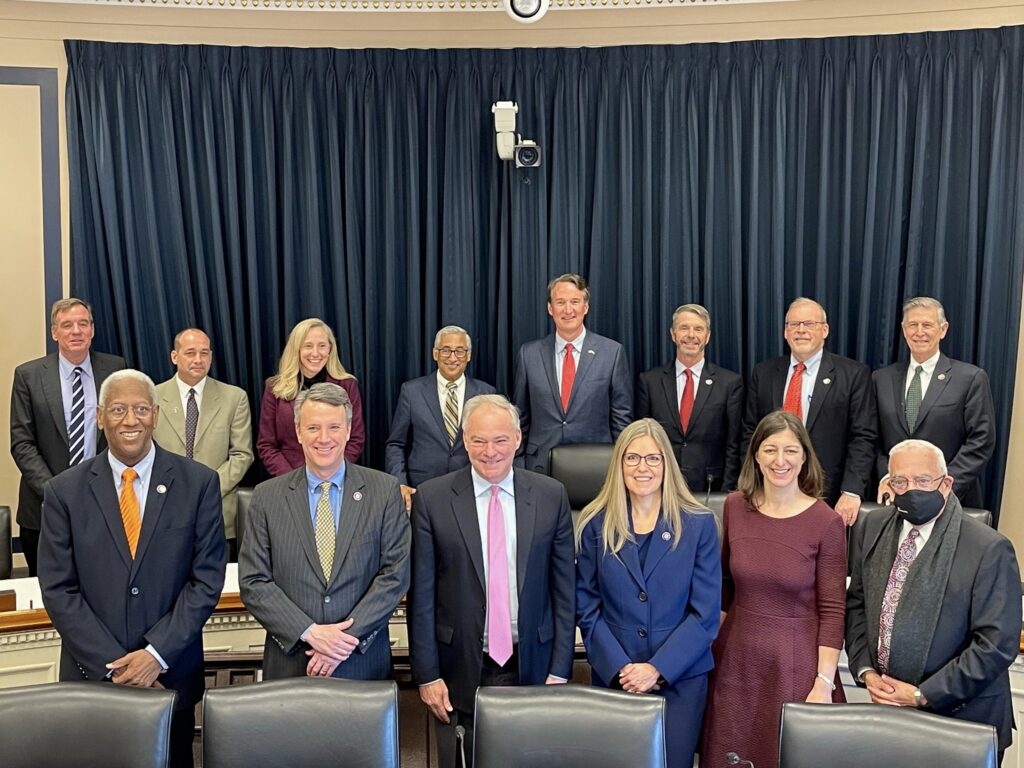The General Assembly will be back in town Wednesday to vote on Governor Glenn Youngkin’s amendments and vetoes to legislation passed earlier this year, but it is unlikely to have a budget compromise ready for approval by then.
“Informally, the chairs are going back and forth a little bit, and we keep getting briefed, but we have not really gotten to a point where we can do a final negotiation, if you will. There’s still significant differences there in what we we’re working on,” conferee State Senator Emmett Hanger (R-Augusta) told The Virginia Star on Thursday. “We’ve got some tentative agreements, I guess you’d say.”
Citing booming revenues, Governor Glenn Youngkin and the Republican-controlled House of Delegates have pushed for a major tax relief package, while the Democrat-controlled Senate has put forward smaller tax relief measures with more one-time spending as a way of protecting future revenue. Hanger, a moderate Republican, has also warned that Virginia’s tax revenue may not be as strong in future years and supported the Senate’s proposal. One of the leading sticking points is Youngkin’s proposal to double the standard deduction, a $2.1 billion budget item that the Senate doesn’t include in its proposals. Other smaller disagreements include how much of the grocery tax should be cut and how large raises given to state employees should be.
Legislators ran out of time to finish the compromise during the regular session, and Youngkin recalled them to a special session to prompt more action ahead of a July 1 deadline, but the broader partisan tit-for-tat in Virginia politics has slowed progress.
At the beginning of his term, Youngkin nominated Trump EPA Administrator Andrew Wheeler for a top cabinet position, but Senate Democrats blocked Wheeler’s confirmation. That led to a back-and-forth where both Republicans and Democrats blocked more gubernatorial nominees. The battle has continued after the regular session; recently, Youngkin vetoed nine bills from Senator Adam Ebbin (D-Alexandria), who had helped block some Youngkin nominees.
“All the activity that has transpired has kind of made it more difficult to make concessions, coming from both sides,” Hanger said.
“All of that type of activity, which doesn’t need to happen, it distracts from our major job of providing services to the constituents we serve, and right now, it’s very important that we come up with a timely budget that addresses the core needs of the commonwealth. So that should be our focus, rather than the fun and games of extreme partisanship that’s creeping in, just as it has on the national level,” he said.
Hanger added, “There’s not been a total, I guess, walkaway from friendships across the aisle, that type of thing. We’re not there, but it is almost as if we’re enemies now, we’re not just in this as joint partners trying to effect good governance. It’s more about, ‘I’m fighting for the Republican causes, the other guys are fighting for the Democratic causes,’ and that kind of overshadows the fact that we’re both serving the same constituents.”
“The governor’s vetoes did not help the discussions,” State Senator Scott Surovell (D-Fairfax) told The Star.
He said a situation where partisan politics threaten budget completion isn’t unusual in Virginia.
“It’s not unusual when we start off with a big gap between chambers like this and we have either large cuts to make or significant revenue gains,” he said.
House Education Chair Glenn Davis (R-Virginia Beach) told The Star, “I think it has some people in a higher emotional state, but at the end of the day, the conferees know that there’s a job to do and the job is to fund the programs necessary to provide for services for citizens and to have a balanced budget. And you know, this isn’t the first time we’ve ever had a governor veto a different party’s bill. It won’t be the last.”
“I do believe everyone is working to ultimately do what we all know has to be done and kind of put the politics aside,” he said. “Conferees have always kind of been there. They may disagree on policy, but ultimately, it is a disagreement on policy and working through those compromises that drive the conversations. Not letting emotions get the better of them.”
This article originally appeared in The Virginia Star. The opinions expressed in this article are those of the author and do not necessarily reflect the positions of The Republican Standard. Republished with permission.

